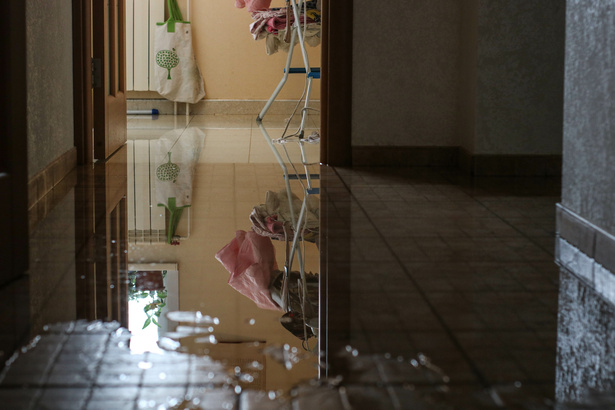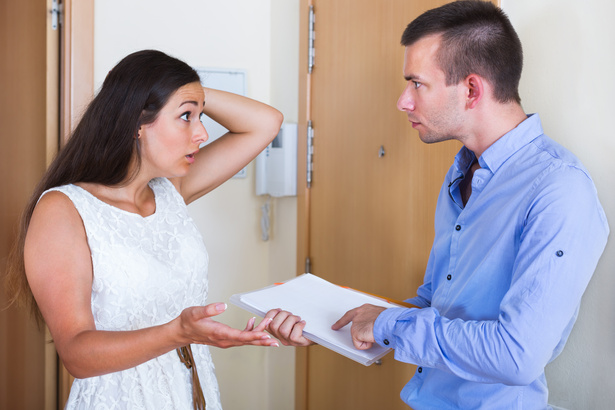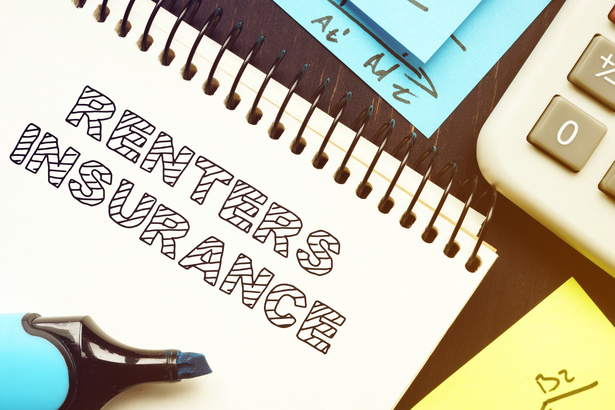You just might be one of those people who's accident-prone, and you did something to your apartment that can't quite be undone without some serious repair. Sometimes, accidents can happen in a rental unit, and it might even be your fault. You may have slipped and dropped something heavy, causing floorboard damage.

Your kid might have thrown a hard toy at a window and broken it. It’s not uncommon for these scenarios to take place in your apartment, but there are things you can do (no, don't hide it or lie!) What can you do about it if you can't afford to pay out of pocket? Does renters insurance help? What will your landlord say? Here are steps you can take to ensure you don't get hit hard.
Notify Your Landlord

We can't make it any simpler than this. As soon as the damage occurs to your rental property, make sure you contact your landlord directly. Don't worry that it would make him or her angry. The sooner you handle it, the better, and it doesn't look like you're trying to be evasive. If it's an accident, they will understand and then they can tend to it before things get worse.
Offer to contact maintenance or make sure you make your apartment available for your landlord to assess the damage. If the damage is harmful to you or your family, make sure you contact your landlord and go to a safe place. Once you’ve contacted your landlord and/or building maintenance, they can assist with assessing the damage and can take the right steps to remedy it.
Failure to Report Damage

On the flipside, what happens if you don't report the damage? Things could get very ugly. Instead of letting your landlord know, you decide to hide things only to have them discovered when your rental unit is inspected prior to move-out. They have checklists to know the condition prior to your move-in, and they also have your security deposit. Even if you choose to stay there, and they find the damage when you renew your lease or when they come to the unit to do other work, you risk not just the cost but also a poor relationship with your landlord going forward.
If you fail to report it, they will be pretty upset when they discover the damage during the move-out inspection. Not only can they withhold your security deposit, they can legally use that money to repair the damage. Had you reported it when it happened, your landlord most likely would've worked with you to find an equitable solution. If further related damage occurs afterwards, things could get even worse, which is even more reason to notify them immediately.
Seek a Compromise

If you have a good relationship with your landlord, and let's hope you do, then work peacefully to find a solution. If you're not the kind of person who did intentional damage, then you might be on good footing to negotiate a solution. Don't lie, don't fabricate a different story, don't try to muddle the facts into something in your favor. Take responsibility, communicate clearly, and take photos of the damage in as much detail as you can. If you knocked over your TV on accident, and it cracked the floor, then leave it as is and take photos. This way, they can see what took place and conclude that it was, indeed, an accident.
Look at your lease language and know your facts before you have an involved discussion about who will pay and how much. This means you're prepared to have an educated discussion. Don't just tell them they must pay for it. Own it, and that will put you in a better place to negotiate. Chances are, if your landlord is reasonable, they will be willing to find a good compromise.
Can Renters Insurance Help?

When it comes to the actual damage to the landlord's property, your renter's insurance policy won't cover the damage to it, unfortunately. What it will cover is damage to your own personal property within those four walls of the rental unit. Renter's policies usually cover theft of personal property, damage to personal property, personal liability damages, emergency medical expenses for guests, and additional living expenses if you need to temporarily relocate. Even if you caused damage that makes your unit uninhabitable, your policy will cover those temporary relocation costs.
If your rental home becomes uninhabitable because of what is known as a "covered peril", renters insurance will pay for expenses above and beyond what are your normal daily living expenses. This is what's commonly known as "loss of use coverage". But, again, when it comes to the actual damage you our your family caused, rental insurance can't cover those repair of that specific damage. As we mentioned earlier, it's best to work with your landlord to find a good solution you can both live with.